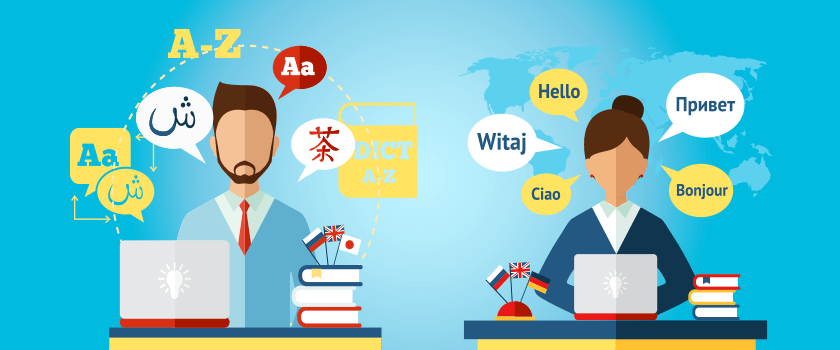It is more important than ever to communicate effectively in multiple languages in today’s increasingly globalised culture. Improved personal and professional communication between individuals and organisations with different linguistic backgrounds is largely dependent on language translation services. Whether it’s a personal letter, commercial contact, or legal documentation, exact translation ensures the desired message is presented simply and effectively. This article discusses the significance of letter translation services, the types of letters that are frequently translated, the procedure involved, and advice for selecting the best translation service.
The Importance of Letter Translation Services
1. Enhancing Communication
Effective communication is vital in both personal and professional contexts. Letter translation services help individuals and organisations communicate their ideas, objectives, and facts. This is especially crucial in multicultural settings, when miscommunication can lead to confrontations or misinterpretations.
2. Legal and Official Requirements.
Many legal and official papers must be precisely translated to ensure compliance with requirements. Misinterpretations can have serious legal consequences, so it is critical to use competent translation services for vital correspondence, such as contracts, agreements, and official letters.
3. Personal connections.
On a personal level, letters can carry emotional weight. Translating personal letters, such as those to family or friends, allows people to stay in touch despite language barriers. This personal touch strengthens interactions and friendships between people of diverse cultures.
4. Business expansion.
For firms trying to expand into international markets, letter translation services are essential. Whether negotiating contracts, engaging with partners, or marketing to a new audience, precise translation ensures that communications are not lost in the translation process. It enables businesses to establish trust and credibility in overseas markets.
Types of Letters Commonly Translated
1. Personal letters.
Personal Letter Translation Services can be exchanged by family, friends, and love partners. These letters usually include personal emotions, updates, or invitations. The original text’s emotional tone and nuances must be kept throughout translation.
2. Business letters.
Business letters can be formal communication with clients and partners, or informal discussions within a company. This category contains:
Sales Letters: Used to promote products or services.
Cover Letters: Accompany job applications and introduce candidates to employers.
Client correspondence entails communicating with clients regarding services, questions, and complaints.
Invoices and billing letters are financial transaction paperwork.
3. Legal Letters
Legal letters are generally very technical, necessitating thorough translations. Examples include:
Contracts: Agreements that outline terms and conditions.
Notices: Legal notices of rights and obligations.
Affidavits are written statements confirmed under oath.
4. Academic Letters
Academic letters contain education-related correspondence like application letters, recommendation letters, and acceptance letters. Accurate translation is critical for preserving the integrity of the information being transmitted.
5. Medical Letters
To ensure that medical personnel and patients comprehend vital health information, medical correspondence must be correctly translated. This includes patient information, medicines, and referral letters.
The Process of Letter Translation Services
Step 1: Initial Assessment
The translation process begins with a preliminary review of the letter. This includes comprehending the aim, target audience, and any applicable terminology. The translator may interact with the customer to clarify any details or demands.
Step 2: Translation.
After the assessment is completed, the translator begins the actual translation. This involves:
Translating Content: The translator converts the text from the source language to the target language while preserving the original meaning.
Maintaining Tone and Style: Personal and business letters may utilise different tones (formal, informal, persuasive). The translator should ensure that the tone is appropriate for the audience.
Terminology investigation: To ensure accuracy in specialised letters (e.g., legal, medical), the translator may need to look into appropriate terminology.
Step 3: Proofread and modify.
After the translation is complete, the document is proofread and edited. This step is critical for identifying grammatical problems, typos, and inconsistencies. Multiple rounds of assessment may be required to ensure the highest level of quality.
Step 4: Quality assurance.
Many professional translation firms have quality assurance procedures in place. This may include a final assessment by a second translator or a language expert to ensure that the translation satisfies the requirements.
Step 5: Delivery
Once the translation is finalized, it is delivered to the client. Depending on the service, the client may receive the document in a variety of forms (PDF, Word, etc.) and may be able to request extra services such as certification or notarisation if necessary.
Choosing the Right Letter Translation Services.
1. Accreditation and credentials
When choosing a Letter Translation service, ensure that it is accredited and has the appropriate credentials. Look for credentials from recognised translation organisations, such as the American Translators Association (ATA), or equivalent agencies in your area.
2. Experience and Specialisation.
Consider a translation service’s track record of translating the specific types of messages you require. For example, if you need to interpret legal messaging, select a company that specializes in legal terms and papers.
3. Local translators.
Find translation companies that employ native speakers of the target language. Local translators are more familiar with cultural nuances, slang expressions, and regional dialects, increasing translation accuracy and efficiency.
4. Customer feedback and testimonials
Check for client reviews and testimonials to determine the level of service provided. Positive comments from prior clients might help to determine the translation service’s dependability and professionalism.
5. Turnaround Time and Price
Discuss turnaround timeframes and pricing in advance. Ensure that the provider can fulfil your deadlines and offer at a low cost without losing quality.
Common Challenges in Letter Translation
1. Cultural differences.
Cultural differences can have a big impact on letter translation. Certain phrases or idioms may not have direct equivalents in the target language, forcing the translator to discover appropriate substitutes that convey the same meaning.
2. Technical Terminology.
Letters containing specialised vocabulary, such as legal or medical jargon, provide difficulties for translators. Ensuring accuracy in these areas is critical to avoiding misconceptions.
3. Tone & Style
Maintaining a proper tone and manner is critical, particularly in business interactions. A letter that is overly formal or informal for the intended recipient may lead to misinterpretation.
Conclusion
To overcome communication barriers in the diverse and connected world of today, message translation services are essential. To communicate effectively and efficiently, trustworthy translation is needed for anything from private letters to important documents. Individuals and corporations can make better educated choices about access to translation services if they understand the necessity of translating messages, types of messages, and widely translated techniques. Choosing the right translation service provider can help you maintain the original meaning, tone, and cultural significance of your message, enabling effective communication across languages and borders. Investing in expert messaging services, both for personal and commercial purposes, is a step towards better understanding and stronger relationships in an increasingly globalized world.


